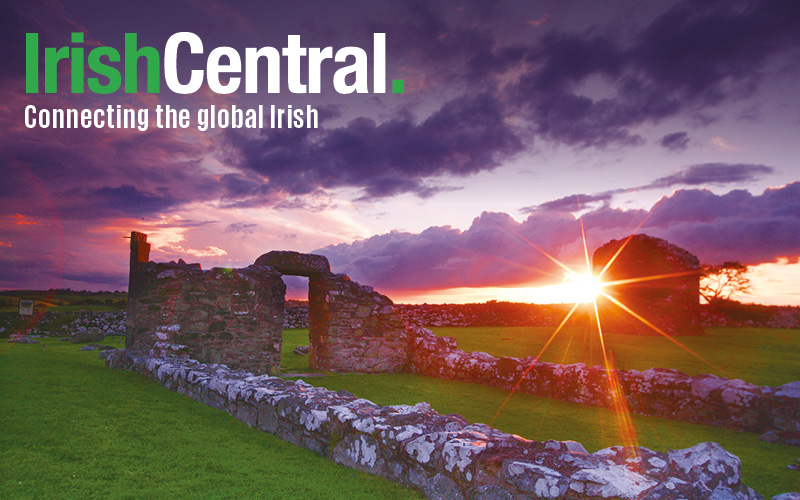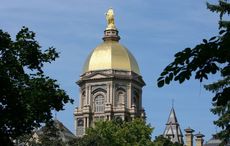Unusual names are without a doubt a growing trend in the fine art of baby naming.
Why not go for an unusual name that reflects your Irish heritage?
Below are ten boys and ten girls names still in their traditional Gaelic forms.
Is your own name on the list? Which are your favorites?
Let us know in the comments below.
Girls:
1. Aine
Pronounced: “awn+ye”
Ancient Irish name from the noun aine that means “splendor, radiance, brilliance.” Aine is connected with fruitfulness and prosperity. The queen of the Munster fairies was called Aine as was one of the wives of Fionn Mac Cool. Aine appears in folktales as “the best-hearted woman who ever lived – lucky in love and in money.”
2. Blathnaid, Blanaid
Pronounced: “blaw+nid”
Blath means “flower, blossom.” In legend, Blaithnaid, the reluctant wife of Curai Mac Daire, loved Cuchulainn, her husband’s rival. She revealed the secret entrance to her husband’s fortress to him by milking her cow and letting the milk run down the hill into a stream. Cuchulainn followed the stream, raided the fortress and rescued Blathnaid.
3. Caoiliainn
Pronounced: “kay+linn”
Caol ”slender” and fionn ”white, fair, pure.” Several saints were named Caoilainn, and one was described as “a pious lady who quickly won the esteem and affection of her sister nuns by her exactness to every duty, as also by her sweet temper, gentle, confiding disposition and unaffected piety.”
4. Dearbhail, Dearbhal or Deirbhile
Pronounced: “dare + voll” or “dare + villa”
From der + fal “daughter of Fal,” “Fal” being an ancient name for Ireland.
5. Fianna
Pronounced: “fee+ina”
Fionn Mac Cool’s warrior band were known as the Fianna (read the legend). In early Ireland women had equal rights and while the warriors were usually men, there is a strong tradition of Celtic women fighting alongside the men, dating as far back as Roman times.
6. Fionnula
Pronounced: “finn + ula”
The name comes from fionn + ghuala ”fair shouldered.” The chieftan King Lir and his wife Aobh had a daughter Fionnoula and three sons Aedh, Conn, and Fiachra. When Aodh died, Lir’s new wife Aoife was so jealous of her husband’s love for his children that she cast a spell on them and turned them into swans and condemned them to spend 300 years on Lake Daravarragh, 300 years on the Sea of Moyle and 300 years on Innis Glora. However, if they heard a Christian bell in Ireland they would become people again. One morning they were awakened by the sound of a Mass bell. St. Patrick had arrived. The children were brought to him and he baptised them and they have lived on in Irish mythology as the “Children of Lir.”
7. Maire
Pronounced: “my+ra”
The name that was used in Ireland for Our Lady was Muire and interestingly, her name was so honored that it was rarely used as a first name until the end of the fifteenth century. Then Maire became acceptable as a given name but the spelling Muire was reserved for the Blessed Mother.
8. Meara
Pronounced: “meer+a”
The Irish word mara means “sea.”
9. Radha
Pronounced: “row+a”
From radharc meaning “a vision.”
10. Sile, Sheelagh
Pronounced: “she+la”
The Irish form of the Latin name Cecilia, the patron saint of music and implies “pure and musical.”
_______________
Read More:
The top 100 Irish last names explained
Who is your patron saint? Match your name to the Irish holy day
_______________
Boys:
1. Ardan
Pronounced: “are+dawn”
From ardanach meaning "high aspiration." Ardan was one of the sons of Usna who helped Deirdre escape to Scotland so that she would not be forced to marry King Conchobhar MacNessa.
2. Cabhan
Pronounced: “kav + an"
In Irish cabhan means "grassy hill" or "hollow" and is the name of the Ulster county Cavan.
3. Cathal, Cahal
Pronounced: "ka + hal"
cath "battle" and all "mighty" and signifies "a great warrior." On his way home from a visit to Rome (c. 666 AD) St. Cathal was asked to fill the vacant see of Taranto in southern Italy and served as it"s prelate until his death. Known as St. Cathaldus, he is still venerated in the area and a fresh water stream in the bay is known as "l’annello di san Cathaldo," "the ring of St. Cathaldus," as it marks the place where he is believed to have stilled a storm by throwing his ring into the water. He was the patron saint of the Italian army during WWI.
4. Daithi
Pronounced: “dah + hee"
It is an old Irish name meaning "swiftness, nimbleness." Daithi, the last pagan king of Ireland, ruled from 405 AD to 426 AD, and he had twenty-four sons. Along with Crimhthan the Great (366 A.D.) and Niall of the Nine Hostages (379 A.D.) Daithi led Irish fleets to raid the Roman Empire. He was killed by lightning in the Alps and is buried under a standing stone called "King Daithi’s Stone." As in all these matters there is debate over where the stone is located, either in County Roscommon or on the Aran Islands, off the coast of County Galway.
5. Eirnin
Pronounced: “air+nin”
Meaning "iron." The name is often linked with Ernest, a Germanic word meaning "vigor." The name of sixteen Irish saints, St. Eirnin is the patron saint of Tory, an island off the coast of County Donegal.
6. Gearoid
Pronounced: "gar + roid"
Means "brave with a spear" or "spear carrier." The name is associated with Gearoid Fitzgerald, the 3rd Earl of Desmond (1338-98) and leader of the most powerful Norman family in late medieval Ireland. It was believed he had magical powers and is reputed to protect the environment at Lough Gur, where he had a castle in County Limerick. In one story, when a local landowner planned to drain the lake or forbid local people access to it Gearoid made his horse bolt, fatally injuring the landowner. Some even say that he is sleeping at the bottom of Lough Gur, waiting to return to the land of the living.
7. Lorcan
Pronounced: “"lor + can"
Means "silent" or "fierce" and was probably used as a nickname for a "brave warrior." Sometimes equated with Laurence, Lorcan is a name in its own right. One Lorcan was the grandfather of Brian Boru, two kings of Leinster bore the name and St. Lorcan O’Tuathail, better known as St. Laurence O’Toole, was an influential bishop of Dublin and an important mediator between the Norman invaders and the Irish in the twelfth century.
8. Peadar, Peadair
Pronounced: "pad + ar"
Irish form of Peter and thus comes ultimately from Greekpetros "the rock," it is still in common use in Ireland today.
9. Ruari
Pronounced: “ro+ree”
From rua + ri meaning "red king, great king." Rory O’Connor, the last High King of Ireland was forced to abdicate the throne in 1175.
10. Tadhg
Pronounced: “"ti + gue"
Irish name meaning "a poet" or "a philosopher." In one legend, at the Battle of Clontarf in 1014 Tadhg Mór("Big Tadhg") O’Kelly is reported to have fought "like a wolf dog" before he was overcome by the Vikings and killed. When he fell a ferocious animal came from the ocean to protect the dead body of the chieftain until it was retrieved by his O’Kelly kinsmen. "A most extraordinary creature, it had the head of a fox, the chest of an elephant, the mane of a horse, the forelegs of an eagle, the body and hind legs of a hound and the tail of a lion."
Source: babynamesofireland




Comments